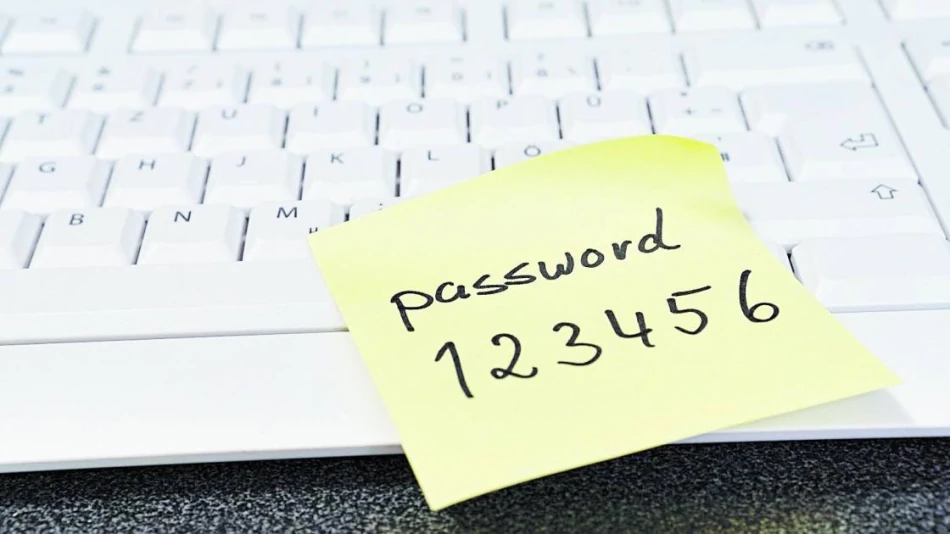
Outdated Passwords: Expert Urges Shift to Secure Access Keys for Enhanced Online Protection
The Password Wars: Why Tech Giants Are Losing the Battle Against User Habits
Despite years of promises from Microsoft, Google, and Apple about eliminating passwords, the traditional login method refuses to die. While biometric authentication and passkey technology offer superior security, the transition reveals a fundamental clash between corporate ambitions and user behavior that could reshape how we think about digital security adoption.
Microsoft's Bold Declaration Meets Market Reality
In December, Microsoft executives boldly declared that "the era of passwords is nearing its end" in a company blog post. The tech giant has been preparing for this scenario for years, automatically enabling passwordless login options for new user accounts since May. Yet this proclamation echoes similar statements made throughout the past decade, raising questions about whether the industry has misjudged consumer readiness for change.
The disconnect becomes clear when examining real-world implementation. While major platforms enhance login security, countless websites still rely on simple password systems. Even government services are taking incremental steps—France's tax administration recently strengthened its cybersecurity by requiring email verification codes alongside traditional passwords, rather than eliminating passwords entirely.
The Security Imperative Behind the Push
Quantifying the Password Problem
The urgency driving this transition stems from measurable security failures. Cybersecurity expert Benoit Grunemwald from ESET explains that passwords under eight characters can be cracked within minutes or seconds using modern fraud techniques. More concerning, passwords are frequently compromised through data breaches when organizations store them improperly.
The scale of this vulnerability became stark in June when researchers from CyberNews discovered a massive database containing approximately 16 billion usernames and passwords extracted from hacked files. This represents the largest known compilation of compromised credentials, illustrating why the industry views password elimination as existential rather than optional.
The FIDO Alliance Strategy
These security gaps prompted coordinated action from tech giants through the FIDO (Fast Identity Online) Alliance. The coalition includes Google, Microsoft, Apple, Amazon, and recently TikTok, working to create and promote passwordless authentication standards.
Their solution centers on passkeys—digital identifiers that use independent devices like smartphones to authorize logins through PINs or biometric data instead of passwords. As Troy Hunt, creator of the HaveIBeenPwned breach notification service, notes, passkeys prevent users from accidentally providing credentials to malicious websites, addressing a major phishing vulnerability.
Why the Revolution Stalled
The Familiarity Factor
Hunt offers a sobering perspective on adoption timelines: "Ten years ago, we were asking ourselves the same question about whether passwords would still exist in another decade. The reality now is that we have more passwords than ever before." This observation highlights a crucial market dynamic—technological capability doesn't guarantee behavioral change.
The persistence of passwords reflects their universal accessibility. Unlike passkeys, which require initial setup procedures and technical understanding, passwords operate on a mental model everyone already knows. This familiarity creates switching costs that extend beyond mere convenience into cognitive comfort zones.
Implementation Friction
Passkeys introduce complexity that passwords avoid. Recovery processes become significantly more challenging when users forget PINs or lose registered "trusted devices" compared to simple password reset procedures. This friction particularly affects less tech-savvy demographics who represent substantial portions of most user bases.
Grunemwald emphasizes that transitioning to passkeys requires developing new security habits: "People must care about securing their smartphones and other devices, because these become the primary targets for attacks." This shifts the security burden rather than eliminating it, potentially creating new vulnerabilities.
Market Implications and Strategic Outlook
The password transition struggle reveals broader lessons about technology adoption in mature markets. While security benefits clearly favor passkeys, the gap between corporate roadmaps and user behavior suggests a longer transition period than initially projected.
For businesses, this creates a dual-system reality where password and passwordless authentication must coexist indefinitely. Companies investing in authentication infrastructure should plan for hybrid approaches rather than assuming rapid password obsolescence.
The outcome will likely depend less on technological superiority and more on whether tech giants can make passwordless systems as intuitive as the passwords they aim to replace. Until that balance shifts, the "death" of passwords remains greatly exaggerated.
Most Viewed News

 Omar Rahman
Omar Rahman






